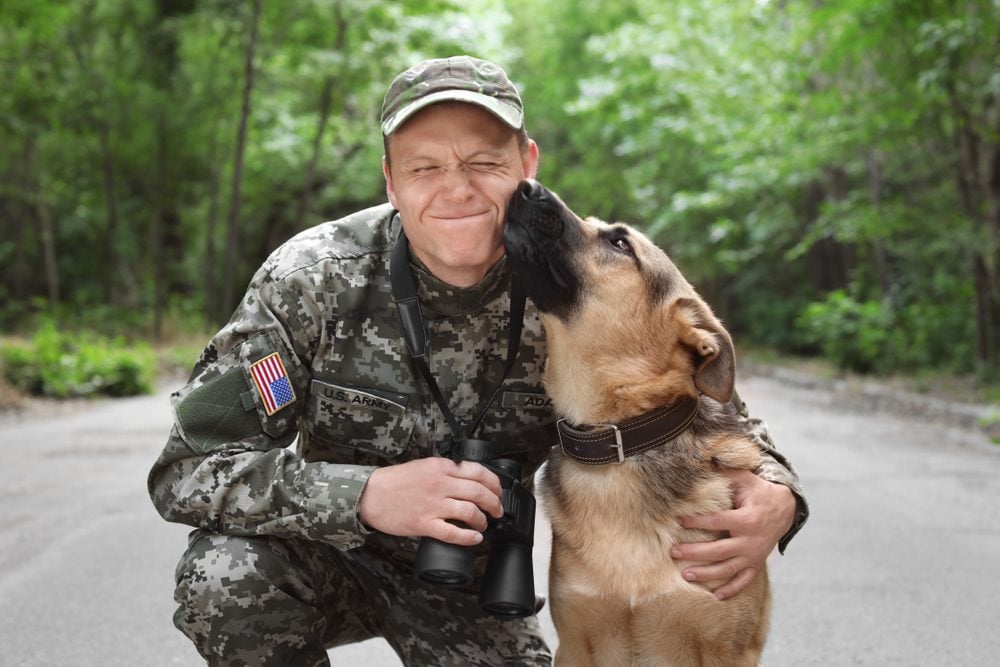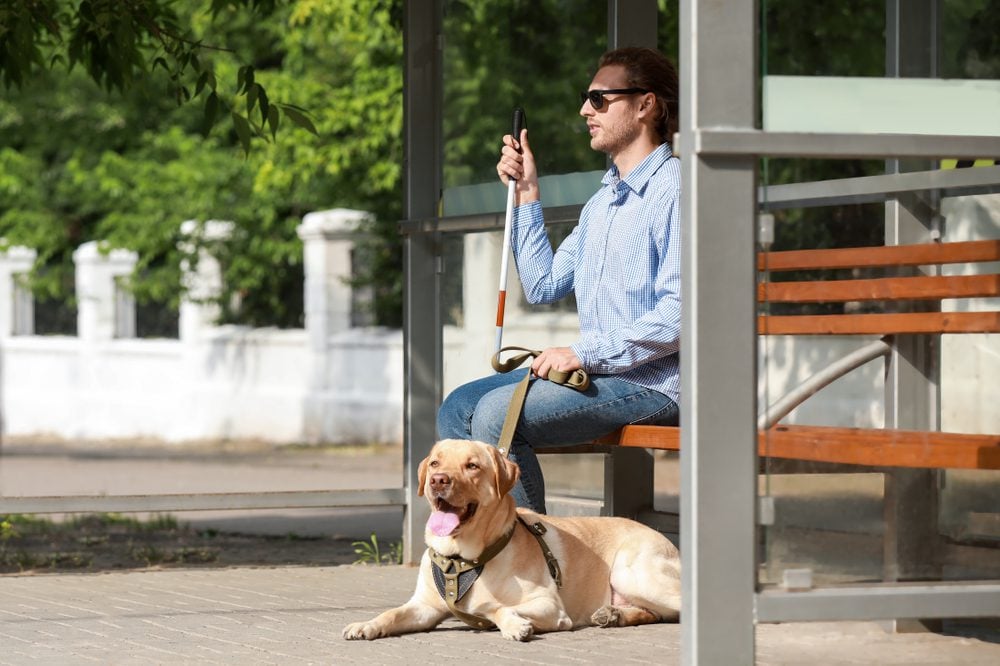The idea of a dog in a vest is not as far-fetched as it may sound. In fact, thousands of service animals wear vests everyday to let others know that they’re trained to help their disabled owners. Service animals are a testament to the amazing things animals are capable of, so it makes sense that there are plenty of federal and state laws in place to protect both their rights and the rights of their disabled owners.
Similarly, each state has their own set of laws surrounding service animals’ legal status, and North Carolina is no exception. Between federal and state law, disabled North Carolinians can enjoy the benefits of their service animals at home, in public, and on the job. We’ll explore the specifics of these laws here so that disabled residents of the Tar Heel State can learn more about their rights and how they can register their service animal.
How North Carolina Defines Service Animals
Interestingly, North Carolina doesn’t have a single, cut-and-dry definition for service animals, instead defining them in certain contexts and relying on federal provisions to fill in the gaps. The American Disabilities Act (ADA) defines service animals as “Dogs that are individually trained to do work or perform tasks for people with disabilities.” These dogs receive highly specialized training to help them do work or perform disability-specific tasks and duties for their owners.
In contrast, North Carolina state law on public accommodations refers to service animals, but doesn’t explicitly state which animals qualify; this is just one example of how the ADA’s definition applies in the case of a blurry or altogether missing definition.
Examples of the duties service animals perform according to the ADA’s definition are guide dogs for the blind or visually-impaired, hearing dogs for the deaf or hearing-impaired, mobility dogs that can push their owner’s wheelchairs, ring doorbells, or stabilize their gait, as well as psychiatric service dogs who can stop their owners from hurting themselves and scan for safety threats.
Sometimes, though, miniature horses can also qualify as service animals according to the ADA’s definition. However, disabled owners with miniature horses for service animals may discover that not all public accommodations or facilities are equipped to handle them. This means the allowance of your miniature horse service animal will largely be case by case, dependent on the weight and size of your miniature horse, whether it’s housebroken, and if you can control it properly while in public.
Unlike other states, North Carolina service animal laws do not encompass emotional support animals, which provide their owners emotional support, comfort, or companionship in times of distress. This is because emotional support animals, unlike service animals, do not receive any special training for work, duties, or tasks that are specific to their owners’ disabilities.
Furthermore, neither the ADA nor North Carolina state law require public accommodations to allow emotional support animals onto their premises. To learn more about emotional support animal laws in North Carolina, click here.
Public Accommodations Law in North Carolina
State law allows disabled owners of service animals to bring them to all places in which the public is invited, including hotels, resorts, buses, airlines, places of amusement, and public transportations. Unsurprisingly, the ADA’s definition of public accommodations is also just as expansive, including places like:
- Restaurants and other establishments that serve food and/or beverages
- Educational institutions
- Hotels and other lodging establishments
- Commercial and rental establishments
- Service establishments
- Social service centers
- Public transportation facilities
- Places of exhibit and entertainment, including sports stadiums and theaters
- Places of public gathering, including convention centers and auditoriums
- Places where items are collected and displayed for public use or enjoyment, including libraries and museums
- Exercise and recreational facilities, including gyms, parks, zoos, and bowling alleys
However, note that these protections aren’t a free pass for a service animal to act aggressively or threateningly towards others in public. If a disabled person is unable to control their service animal, or if it’s posing a direct threat to public health and/or safety, public accommodations are free to ask them to leave the premises. Service animals may also be prohibited from entering if it isn’t housebroken.
Moreover, North Carolina is unique in that service animals and their owners can only enjoy these state protections if the service animal displays a tag issued by the North Carolina Health & Human Services Department. This tag must state that the service animal is registered, or the owner may be asked to demonstrate that it has been or is currently being trained to perform disability-specific tasks or duties. It’s worth noting, though, that this registration isn’t legally required.
Owners of service animals also cannot be charged additional fees to bring them to any public accommodation or facility. They will, though, be financially liable for any damages the service animal causes to the property–much like federal housing provisions state.
Housing Laws in North Carolina
As is the case in most other states, federal law usually takes the reins when it comes to housing laws and the rights they afford disabled owners of service animals. The Fair Housing Act (FHA) is the federal law stating that landlords may not require disabled tenants to pay standard animal housing fees for their service animals. Instead, they must waive them so that they can enjoy the full functionality of their home with the help of their service animal.
Interestingly, the FHA does protect emotional support animals in addition to service animals. However, the disabled owner will have to provide documentation verifying their disability and their need for an emotional support animal.
Just like public accommodations laws, though, disabled owners of service animals will be liable for any damages their service animals cause, whether it’s damage to the property or to another person on the premises.
Employment Laws in North Carolina
Once again, the ADA has the final say over service animals in the workplace in North Carolina. Under the ADA’s employment provisions, covered employers must provide their disabled employees “reasonable accommodations” while on the job. As you may have guessed, service animals qualify as a reasonable accommodation here, so long as they don’t place “undue hardship” on the business owner or operations.
Undue hardship is defined as anything that hinders or puts a significant strain on business operations. An example of this could be anything (even beyond service animals) that places a financial burden on the business or business owner. In the context of service animals, undue hardship could be an unruly, aggressive, or otherwise threatening service animal that consistently disrupts other employees or patrons.
Fortunately, this is pretty rare. But just because service animals are typically allowed to accompany their owners on the job with no issue, it doesn’t mean that their owners can simply show up to work with them one day. Usually, employers require their disabled employees to first file a request to have their service animal with them at work.
This request can be either oral or written, although it’s recommended that you get it in writing for your personal records. In addition to the request itself, you’ll need to get documentation from your doctor or an attending medical professional verifying your disability. Additionally, you’ll need to get documentation explaining why you need your service animal on the job with you, as well as the disability-specific tasks and duties it can perform for you.



How Can I Register My Service Animal?
To register your service animal on our website, click here. For a little under $80, you’ll get:
- Lifetime registration for your service animal in the United States’ largest service animal database
- A Service Animal Registration Photo ID Card
- A Registration Certificate for your service animal
- Digital copies of your Registration Certificate, immediately available for download
- The option to order a vest for your service animal
- Full, 24/7 access to our legal team and support staff
Additionally, you’ll receive a small card explaining these service animal laws and your rights, so that you can present it when asked about the presence of your service animal. Keep in mind, though, that registering your service animal on USAA will not grant you any extra rights that are not already outlined by the ADA and North Carolina state law.
Final Thoughts on These Fantastic, Four-Legged Friends
As you can see, federal and state laws intertwine nicely to afford disabled North Carolinians a well-rounded set of rights that allow their service animals to accompany them through daily tasks and living. Thanks to these comprehensive provisions, disabled residents of North Carolina have the freedom to live lives just as functional and fulfilling as their able-bodied neighbors.

